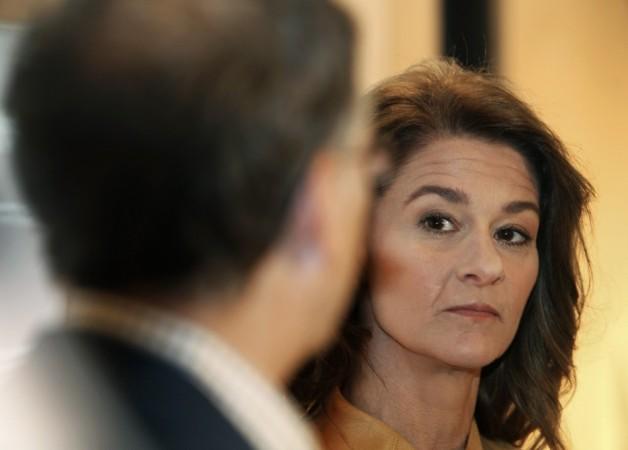
The "learning mode" about the lack of women in technology that Melinda Gates immersed herself in last year is bearing fruit already.
The co-founder and co-chair of the Bill & Melinda Gates Foundation said in September 2016 that she wished to focus on the issue of the lack of women in technology, and would spend the next two years studying the concern before beginning to address the problem.
A glimpse of the fact that she has taken up the subject with great earnestness is offered by her recent write-up, titled 5 Badass Women of Science You Should Know, which was published on Medium.com, earlier this week.
Gates has chosen some of the lesser-known women pioneers in the field of science through the past few centuries (yes!), and the list reveals that the technology professional-turned-philanthropist is going as far back as history will allow.
The subject of gender bias in the scientific community, of course, looms large in Gates' article. "We're graduating fewer women technologists. That is not good for society. We have to change it," she had said in an earlier interview.
What also stands out in her piece is the effort she makes, perhaps consciously, to break another unspoken prejudice that lurks in the minds of researchers — that math-related fields are 'superior' to bio-sciences (Sheldon Cooper, take note).
The fact that she starts the list with Maria Sibylla Merian, who authored a book on caterpillars and catalogued wildlife in Suriname in the 17th century, shows that Gates is upright about equality in the scientific circles in more ways than one.
She also makes it a point to highlight that Merian's effort was undertaken 150 years before Charles Darwin had the idea, underscoring the long-held resentment by women researchers that they usually don't get their due.
Gates has sought to dispel other stereotypes too, like, for instance, that Whites make better scientists.
Nearly 75% of US scientists and engineers are white, The Guardian reported in 2015, citing data from the National Science Foundation.
Gates' list of five women, however, also features Chien-Shiung Wu, known as 'the Chinese Madame Curie,' who finished her PhD at Caltech, was hired on at Princeton and Columbia, and helped fix a malfunctioning nuclear reactor.
Here again, Gates informs the reader that Chien-Shiung Wu worked with two physicists who won the Nobel Prize, and that she wasn't named in the award.
According to Gates' write-up, the scientist wondered during a lecture at MIT, "whether the tiny atoms and nuclei, or the mathematical symbols, or the DNA molecules, have any preference for either masculine or feminine treatment".
And then, of course, she busts the notion that women are only good at soft subjects like arts, and certainly not BOTH science and arts.
Listed here is Hedy Lamarr, known to most people as a movie star of the 1930s and 40s. The Jewish actress got bored by the roles she was given and turned to inventing in her spare time.
"In 1941, she designed the technology that kept submarines on course and is still used in Bluetooth today — and appeared in three blockbuster movies!" Gates writes.
Erna Hoover also worked as a philosophy professor before joining Bell Labs. Gates perhaps includes her in the list also to stress that women do not put their capabilities on the back-burner after becoming mothers.
While Hoover was in the hospital recovering from giving birth to her second daughter, she had an idea about how to computerise telephone switching so that people trying to make calls wouldn't hear 'all circuits are busy'.
"She got one of the very first software patents for it — and her technology is still used today," according to the article.
Gates obviously believes in taking every opportunity to bring the spotlight on to the issues that have for long been kept hushed in scientists' circles. That she puts in focus the unsung names to give credit where it belongs, once again shows she is a philanthropist in every sense of the word.














